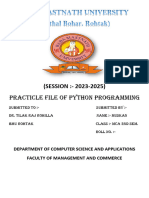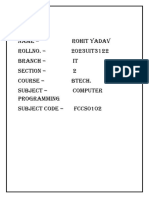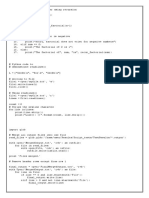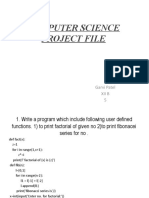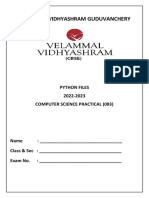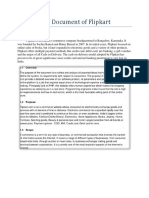0% found this document useful (0 votes)
40 views19 pagesComputer File
how to make practical file of computer programming
Uploaded by
aakash411883Copyright
© © All Rights Reserved
We take content rights seriously. If you suspect this is your content, claim it here.
Available Formats
Download as PDF, TXT or read online on Scribd
0% found this document useful (0 votes)
40 views19 pagesComputer File
how to make practical file of computer programming
Uploaded by
aakash411883Copyright
© © All Rights Reserved
We take content rights seriously. If you suspect this is your content, claim it here.
Available Formats
Download as PDF, TXT or read online on Scribd
/ 19




